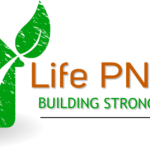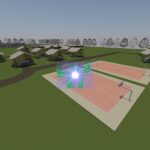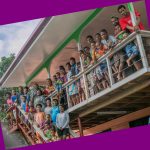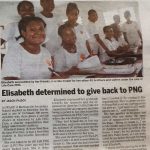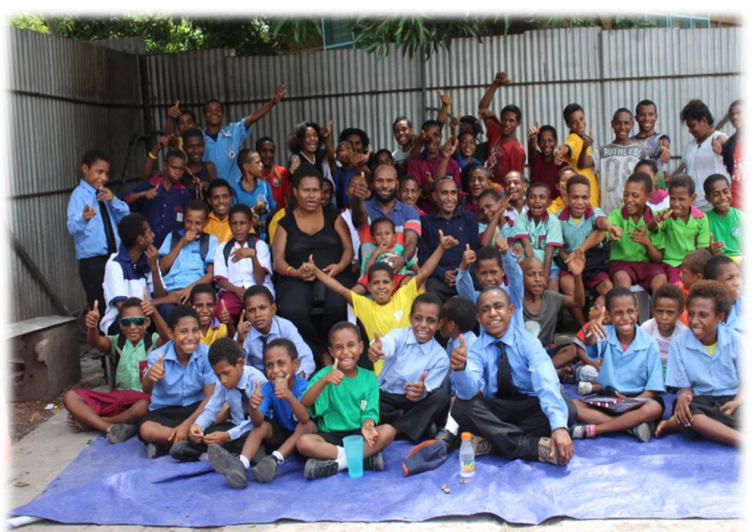
Our Priority Programs
Helping children reach their full potential!
Family Home Care
Out of home care facility called Family Home Care is established as a result of growing numbers of children living on the streets as urbanization continues, especially in Port Moresby and other major urban centres. The Family Home Care is set up to provide family-based residential care for orphaned and most vulnerable children. Life PNG Care is strongly committed to placing the children in a family environment rather than in large institutionalised care settings.
This concept of creating a family environment called home is sympathetic to the locality and culture of PNG. We believe each child will develop into adulthood to create a strong family unit, if the program models a healthy structure and environment despite any early dysfunctional experiences growing up. A nurturing, well-structured family unit is the fundamental role model in any society in the world, and our primary focus is to build homes to raise a next generation of strong, happy and healthy young adults. Each home will have house parents who will provide unconditional love and care and other basic necessities of life that every child deserves.
We have established the first Family Home Care accommodating fifteen vulnerable children under the age of 7-10 years old. This is the first pilot project creating a family home environment for fifteen orphaned and vulnerable children in the city of Port Moresby who have lost both or one of their parents through HIV Aids or through other social circumstances.
They are happy to live in the family home environment where there is unconditional love and care. Since the inception in 2013, we have total of 75 children living in Family Home Care, also we are providing assistance to well over 1,200 vulnerable and homeless street children in Port Moresby.
Life PNG Care accepts children from the age of 4 -10 into Family Home Care (FHC). Once admitted into FHC the children remain a part of their family for life. The children and their house parents live in a home, with other volunteers giving support, in terms health and education. We believe that as the children are trained holistically, they will enter society equipped with the necessary life skills and moral values enabling them to make a significant and lasting impact on the future of our nation, Papua New Guinea.
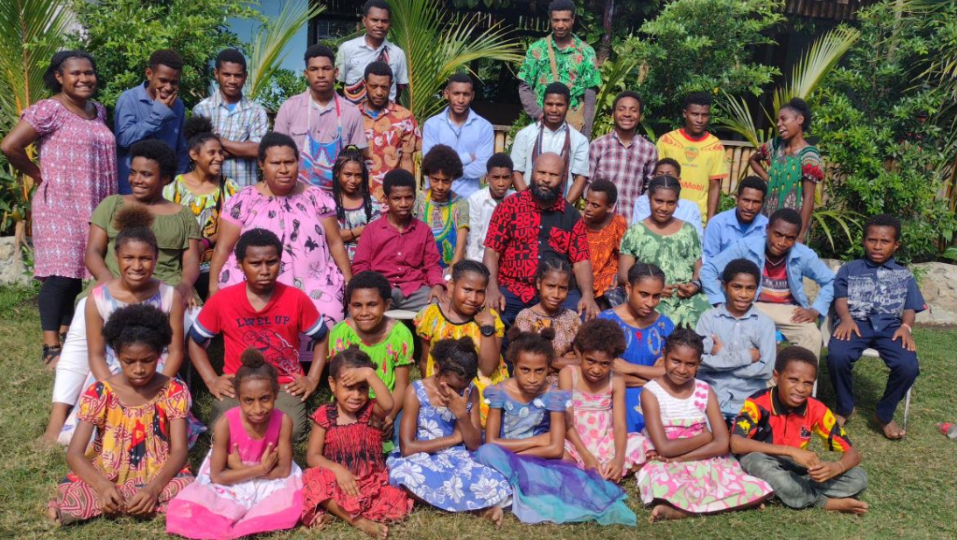
Strongim Pikinini Education Program
There is an estimate of over 1 million + children in PNG are out of school. Sixty (60%) of school age children do not complete primary education. Consequently, the children of PNG are in high risk situation with no formal education, hence Life PNG Care developed and implemented a key strategy to transform and develop these children through our education programs.
Aim of the SPEP is to identify children comes under the category of unprivileged children and assist them to go to school. A child comes under this category will go through the LPC’s IAA3 process to qualify for education assistance under our SPEP.
Strongim Pikinini Education program is a long-term special education assistance program Life PNG Care runs. Under this program our education and social worker team identify school age children or youth, age between (5-18) who are in the category of orphaned and vulnerable and had never been to school or left school due to their background or situation.
Each child or youth is then registered after completion of the assessment process, which is a very important job to fully verify and confirm that each child/youth who are going to benefit under our education program must be genuine. That means they must be under the category of orphan or totally vulnerable living within marginalized community or in a street situation. Once they are admitted into our program after the process, Life PNG Care support them until they graduate in a collage/university.
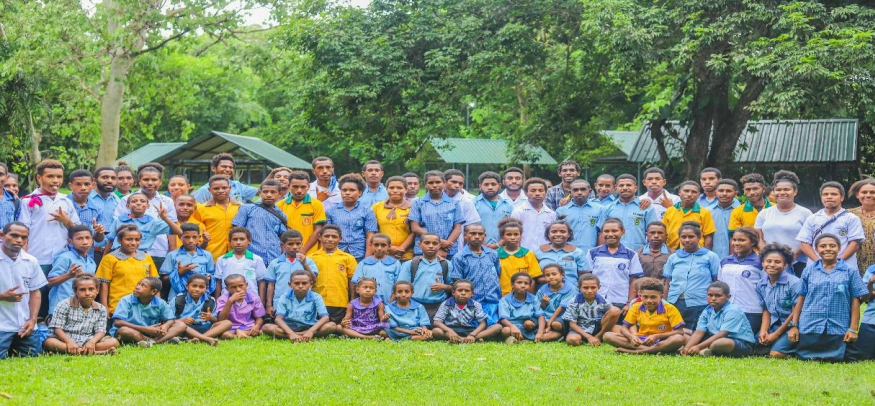
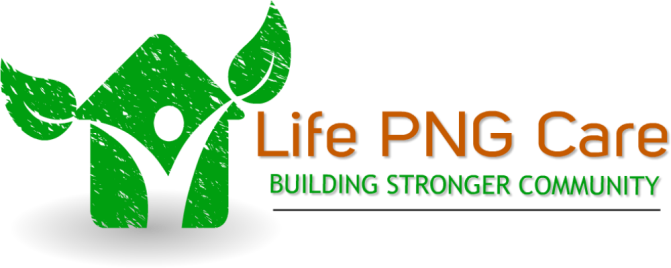
Health and Nutrition
According to UNICEF PNG report in 2010, Papua New Guinea’s children need more support to ensure their basic health and nutrition needs are met and their chances of survival are increased. Eighty-five per cent of the country’s six million people live in geographically isolated areas, this coupled with financial and cultural barriers mean many children do not have access to basic health services, clean water and sanitation equipment, leaving them vulnerable to malnutrition and preventable diseases.
- Under-five mortality rate: 57 of 1000
- Maternal mortality rate: 733 of 100,000
- 3.5 million people in PNG do not have access to safe water and drinking facilities.
The need for basic health and nutrition of the children is another vital area of concern for the children where we work to keep each child live healthy at our Family Home Care. We work towards improving the health status of each child and make sure they receive proper health treatment.
Similarly, we seek assistance from Doctors who does the general medical check for the children. If the child’s parental status of death is related to HIV & Aids, TB or others specific disease, the concerned doctor can do further medical procedures or tests to the child to confirm particular disease for the child. In the case where a child is infected or has a possible disease, we assist the child to go through its medical treatment process. In the case of a child infected with HIV & Aids, we have a plan to take the child to the relevant organization for assist. However, Life PNG Care has not come up with a case of a child being positive of having HIV.
WANPIS JOHN was a homeless street boy, who earned a living by pushing trolleys at Port Moresby Jackson’s airport, who was given a second chance to live in a home and go to school like any other child by Life PNG Care. Sadly he succumbed to tuberculosis and died in July 15th 2014. There are many street children like Wanpis who work on the streets in Port Moresby as well as in other provincial centers. These children are more often than not exposed to a harsh degrading life. Life PNG Care is continuing its efforts in street children’s health by providing a healthy home and getting adequate nutrition for healthy growth and living.
Children in a Street Situation
Life PNG Care began this work for many disadvantage and vulnerable homeless street children in Port Moresby, who live and feed on streets. These are Papua New Guinea’s “Invisible Children”, who have fallen victim through the social or economic cracks in our society.
As a nation, we haven’t done anything to these children who are running loose or displaced on the streets of Port Moresby and other major centers of PNG. Through our Life PNG Care Strongim Pikinini Program, we began to work in various streets to identify totally disadvantaged and orphan children to take care of them.
We take them to our Family Home Care and provide temporary shelter and later repatriate them back to their family or relatives if any exist. In the event where a child is totally disadvantage or orphan, where there is no family support, we take care of them on a long-term arrangement. The child continues to live with us and goes to school. We provide basic necessities of life and make him feel loved and cared.
Through the process of identifying street children, most street children, have fled from homes where abject poverty, violence, alcoholism and familial disintegration are the norm. In order to survive, they steal, beg and clean cars, dig through trash, stand on the street, or do other odd jobs. Some of them are brought to the city to work as labourers by their relatives or villagers and are later abandoned. They are then subjected to substance abuse, violence, lack of health and hygiene and proximity to anti-social elements.
Consequently, we identify that such actions can lead a child to made bad choices and suffers in the long run. We value these lives and we want to give an opportunity by giving a chance to live in a home where there is love and care, a real family home environment is an essence of long life.
“The main objective of targeting children in street situation is to give them an identity and make people realize that street and working children are no different to other kids who have parents or guidance taking care of them. These groups of children are part of our next generation to take this nation forward.

Community Health Awareness & Donations
Life PNG Care introduced a simple health awareness initiative called CHT (Community Health Talk). Basically CHT is introduces to engage community health workers together with team LPC to give basic hygiene and healthy living tips to our vulnerable people living in the settlements, dump sites and remote villages where they do not have access to basic health information or knowledge about healthy living and diseases.
Because they lack the simple information, many people get sick and die each year from very simple curable diseases. This is also one of our vital service which we provide to our people living in the marginalized community.
Part of this program is to donate secondhand clothes to people in the community. We also involve our children at Family Home Care to equally participate in this community outreach programs to learn what we do.


Child Protection
Addressing violence against children is Life PNG Care’s another vital area of concern where we priorities and take initiatives that must be supported as children’s welfare and chances of survival are at stake today. Through our child protection programme, we work closely with other NGO, government organization, civil societies and community leaders to protect children vulnerable to violence, abuse and exploitation. A child’s wellbeing and safety is of our paramount concern.
We have lots of cases where violence against children is becoming common in our society today. This inhuman act has brought fear and insecure into a child’s mind especially when they see or hear something of this nature.
As a result of this, it really affects the child’s physical and mental growth and development. Thus we are very committed to raise them with Christian principal and guidance, and have involved pastors and church leaders to visit the children and share with them on regular basis.
According to UNICEF PNG report 2010 children in Papua New Guinea remain some of the most vulnerable children in the world. Many suffer from domestic violence or are victims of sexual assault, while common cultural practices, such as marrying under customary law from 12 years of age, have increased the likelihood of the commercial exploitation of children, particularly young girls in sex work. Papua New Guinea’s HIV epidemic is leaving many children particularly vulnerable – children who are affected by HIV are more likely to be orphaned, drop out of school, live in child-headed households and experience stigmatization and discrimination.
Life PNG Care therefore work tirelessly to protect and support our children’s welfare so that each child under our program can live without fear, intimidation or any form of violence against children.
Our committed house parents also work hard to teach and discipline the children with Christian principals. We also have some external speakers from Australia who come visit the place and share with the children.
We are working very close with our partners and get some children mentoring and counseling advice from them to avoid any related problem. Our house parents also learn the techniques and approaches on how to communicate with the kids, address issues, discipline the kids, etc. This has created a good relationship between the child and the house parent and they are work very close and help each other.
SUSTAINABILITY OF PROGRAMS/ACTIVITIES
It is anticipated that Life PNG Care’s program and activities is sustained through charity fundraising events, generous giving of business, companies, churches, responsible government agencies and other aid donors. Also our partners and supports for Life PNG Care in Australia and US provides technical advice and support, raising funds to ensure that Life PNG Care continues its programs in Port Moresby and other centre across PNG in the future.
Life PNG Care also has a long-term sustainable plan which is to tapping into agriculture projects within the next 2-5 years’ time. We have a customary land mass of 100 hectares that has viable potential of agriculture activity down the coast, in Abau District of central province. Our plan is to create mini marketing depot for small holders famers to sell their produce to Life PNG Care at a good market price. LPC will then sell these produce to markets in Port Moresby, and through this agriculture activity LPC can also sustain itself with food for the children living at Family Home Care and sell to generate income.
Moreover, networking and the development of strong linkages between members of Life PNG Care will be developed and will be sustainable into the future and key for the continued focus on PNG government development policies. In this way it increases the capacity of our organisations in designing and implementing advocacy initiatives and developing proposals for funding submission to responsible government agencies through achieving objectives in vision 2050.
It is hoped that our programs receiving funding from these group will continue advocacy activities as appropriate beyond the length of the grant.
OUR PARTNERS AND SUPPORTERS
We have the privilege to work close with these partners who have given us their support in kina or kindness, and it is obvious to see few organizations have been working with us over the past years. They have shown interest to continue this partnership to help our vision grow in the years to come.
